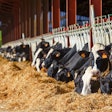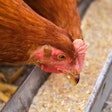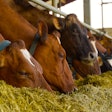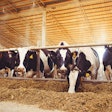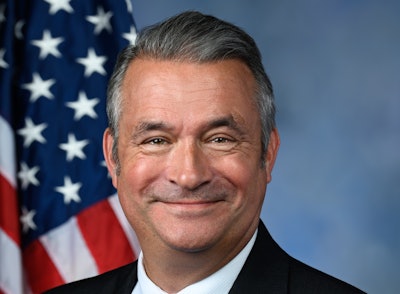
U.S. Rep. Don Bacon caught my attention several years ago as someone who is good to have on the House Agriculture Committee.
If you check out some of the committee hearings, it’s clear that not all members have a solid understanding of the greater agriculture industry. But during one hearing in 2023 as I saw Bacon, R-Nebraska, express concerns about the U.S. vaccine bank and problems the Chinese pork industry had experienced with African swine fever (ASF), I knew he was someone who takes his commitment to farmers and agriculture industry professionals in his district seriously.
Then just a few weeks ago, he gained notoriety as being a rare Republican to question or criticize the actions of the president and his administration. Disappointed with the administration’s decision to cut positions within the United States Department of Agriculture (USDA), then realizing some of those positions were needed to battle the highly pathogenic avian influenza (HPAI) outbreak, Bacon said the federal government’s Department of Government Efficiency (DOGE) did not do what was prudent, which is to “measure twice and cut once.”
He's again questioning the president and his policies, this time involving the continually changing tariff situation.
Why Canada?
Tariffs were a common topic of discussion during a March 4 hearing hosted by the U.S. House Agriculture Committee’s Subcommittee on Livestock, Dairy and Poultry. But not surprisingly, the topic was generally brought up by the various witnesses representing agricultural organizations, or Democrats who aren’t fans of the president whose idea it was to impose them.
Bacon was the exception.
He referenced the United States-Mexico-Canada Agreement (USMCA), which went into effect during the current U.S. president’s first term in 2020. In what seems like a departure from that, the U.S. placed 25% tariffs on both Mexico and Canada.
Two days after the hearing, the U.S. postponed tariffs on the two countries until April so negotiations can continue, but despite the tariffs having not been postponed at the time of the hearing, the possibility of eventual implementation still looms, and the dialogue at the hearing remains relevant.
“I understand some retribution towards Mexico. They were blocking our corn and doing some other things, but with Canada, to my knowledge they’ve lived up to the USMCA. I’m trying to get my arms around how responding to Canada with tariffs is appropriate,” said Bacon.
He then asked if any of the witnesses felt otherwise. Two spoke out, saying they have been mostly pleased with their relationships with Canada.
National Pork Producers Council (NPPC) President Lori Stevermer, after telling Bacon that she loved his last name, said she wasn’t sure how relations with Canada were in all agriculture sectors, but for the pork industry, it has worked well.
She said the U.S. gets young weaned pigs from Canada that would be affected by those tariffs, which also would add cost to our producers. Those pigs are raised in states like Minnesota and Iowa, and “are good healthy pigs that are harvested in our plants.”
“We have an integrated industry, and that’s why we need to continue to find ways to work together,” she said.
Representing the Montana Farmers Union, the organization’s president, Walter Schweizer, said he had concerns over disagreements with country of origin labeling (COOL) and a lack of bilateral trade with wheat, but otherwise, he said USMCA has worked well and relations with Canada have been mostly good for the border state in which he lives.
An example to follow
I have long believed that when you are in any legislative body, the best interests of the geographical region you represent do not (and probably should not) always coincide with the best interests of your political party.
But at the end of the day, you are elected to serve the people who live in your state or your district, and not the party of which you are a member.
And while I don’t dispute that any members of the subcommittee didn’t have their constituents in mind, Bacon seemed to be the only one who put the interests of the agriculture industry in his legislative district first.
I especially appreciate that since my own representative and the subcommittee’s chairman, Tracey Mann, R-Kansas, fell short of the standards set by Bacon. I appreciate Mann seeking input on a bill he helped draft that addresses a controversial proposed Salmonella framework rule as well as U.S. Secretary of Agriculture Brooke Rollins’ proposed plan for battling highly pathogenic avian influenza (HPAI), but I didn’t necessarily appreciate how there were partisan overtones in how he phrased both questions.
It was a similar situation with other subcommittee members on both sides of the aisle.
Colloquially speaking, in politics, pork is bad, but at least as far as this hearing was concerned, Bacon is good.







